Republican National Committee (RNC) Chair Ronna McDaniel outlined new criteria for the second Republican primary debate during an Aug. 2 interview, increasing event requirements.
To qualify for the second debate—scheduled for Sept. 27 at the Ronald Reagan Presidential Library in Simi Valley, California—candidates must meet the higher threshold, including the need for at least three percent support in two national polls or three percent in one national poll and two polls from four of the early-voting states.
They are Iowa, New Hampshire, Nevada, and South Carolina.
Additionally, the candidates for the White House must have at least 50,000 unique donors, with at least 200 of them originating from at least 20 states or territories, and all the requirements must be met at least two days before the debate.
This is a stark increase from the requirements for the first debate, which is scheduled to take place on Aug. 23 in Milwaukee.
“You don’t go to the Olympics unless you pass the prelims, right? This is the Olympic stage, the Republican Party primary. And there’s going to be criteria that you have to meet to be on that stage,” Ms. McDaniel said during an Aug. 2 interview on Fox News’ “America’s Newsroom.”
Seven candidates have already qualified for the first debate: former President Donald Trump, Florida Gov. Ron DeSantis, former UN Ambassador Nikki Haley, Sen. Senator Tim Scott (R-S.C.), biotech entrepreneur Vivek Ramaswamy, former New Jersey Governor Chris Christie, and North Dakota Gov. Doug Burgum.
Two candidates, former Vice President Mike Pence, and former Arkansas Governor Asa Hutchinson, have met the polling requirements but have not yet obtained the required number of individual donors.
First Debate Requirements
The RNC released the requirements for its first debate on June 2 through a press statement, saying the event qualifications will be decided by candidate status, polling, fundraising, and a pledge by the candidates.
To qualify for the first debate, the RNC requires candidates must have officially declared their candidacy and filed an active Statement of Candidacy and Statement of Organization with the Federal Election Commission and identify themselves as Republican nominees.
They must also receive at least one percent in three national polls, or one percent in two national polls and two state-specific polls from Iowa, New Hampshire, South Carolina, and Nevada.
Additionally, the surveys must be recognized by the RNC and conducted on or after July 1.
In addition, the RNC requires candidates to have 40,000 distinct donors to their campaign committee (or exploratory committee), with at least 200 donors in at least 20 states and/or territories.
These polls must survey a minimum of 800 registered likely Republican voters, utilizing a mix of live calls, integrated voice response, online panels, and/or text messages, along with other polling requirements.
In order to participate in any of the RNC’s debates, candidates must commit to supporting the eventual GOP nominee and not participate in any debates not sanctioned by the party, including the Commission on Presidential Debates’ general election debate.
The RNC has refused to disclose the exact wording of the pledge it intends to require candidates to sign.
In 2016, candidates were required to affirm that, if they did not obtain the nomination, they would “endorse the 2016 Republican presidential nominee regardless of who it is” and would neither run as an independent nor accept the nomination of another party.
“I am excited to announce the criteria for our first presidential primary debate in Milwaukee on August 23,” Ms. McDaniel said in the June press release.
“The RNC is committed to putting on a fair, neutral, and transparent primary process, and the qualifying criteria set forth will put our party and eventual nominee in the best position to take back the White House come November 2024.”
Participation in the Debates
Previously, former President Donald Trump suggested that he might skip out on GOP primary debates during the 2024 presidential cycle.
In a late April post on Truth Social, Trump said that the RNC never talked to him or his campaign about the rules and arrangements for debates, indicating his hesitation to participate.
“I see that everybody is talking about the Republican Debates, but nobody got my approval, or the approval of the Trump Campaign, before announcing them,” Mr. Trump wrote on Truth Social.
The other candidates who qualify for the first debate include the same candidates who qualify for the first debate, as well as the likely additions of Mr. Pence and Mr. Hutchinson.
However, Mr. Burgum, conservative talk show host Larry Elder, Miami Mayor Francis Suarez, Michigan businessman Perry Johnson, Texas entrepreneur Ryan Binkley, and former Rep. Will Hurd (R-Texas) will likely all not meet the requirements, potentially seriously damaging their campaigns.
For his part, Mr. Hurd has likely disqualified himself by stating that he will not sign a loyalty pledge to support the eventual Republican nominee in the 2024 campaign to unseat President Joe Biden.
Mr. Trump has not indicated that he will sign the pledge.
The Trump campaign did not immediately respond to The Epoch Times’ request for comment on whether the former president would participate in the second debate.
The Associated Press contributed to this report.



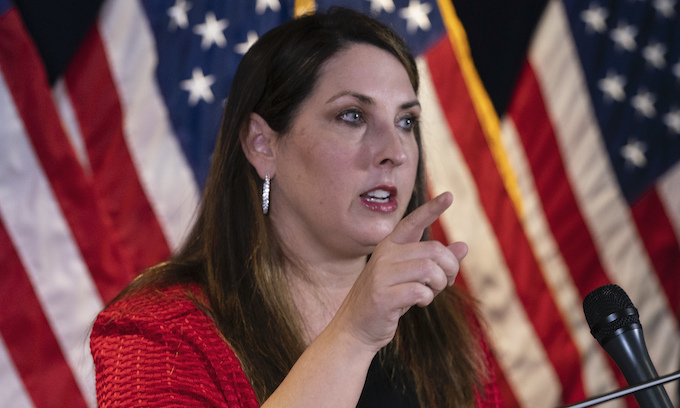
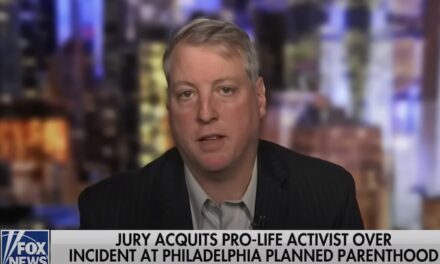

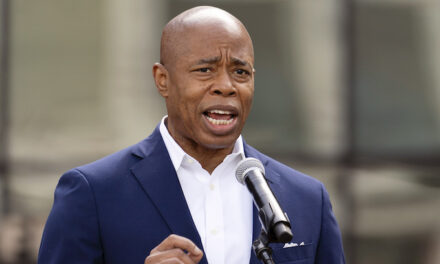
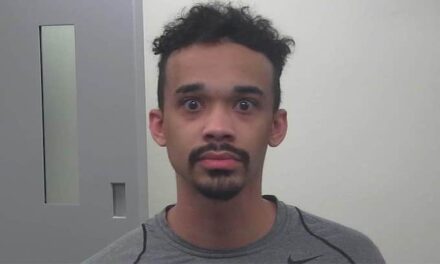






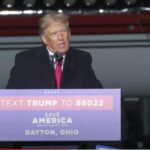
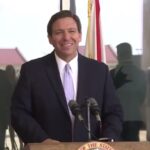
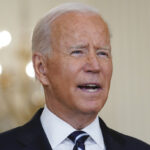
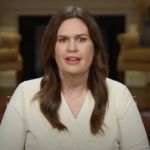
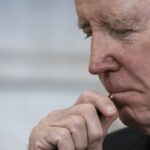
candidates must meet the higher threshold, including the need for at least three percent support in two national polls or three percent in one national poll and two polls from four of the early-voting states.
3% ??? Do these people know what a high threshold is ??
Loss the deadwood and get to it !!!
How’s about we put our OWN Bar. THE national repubicrats can’t participate!